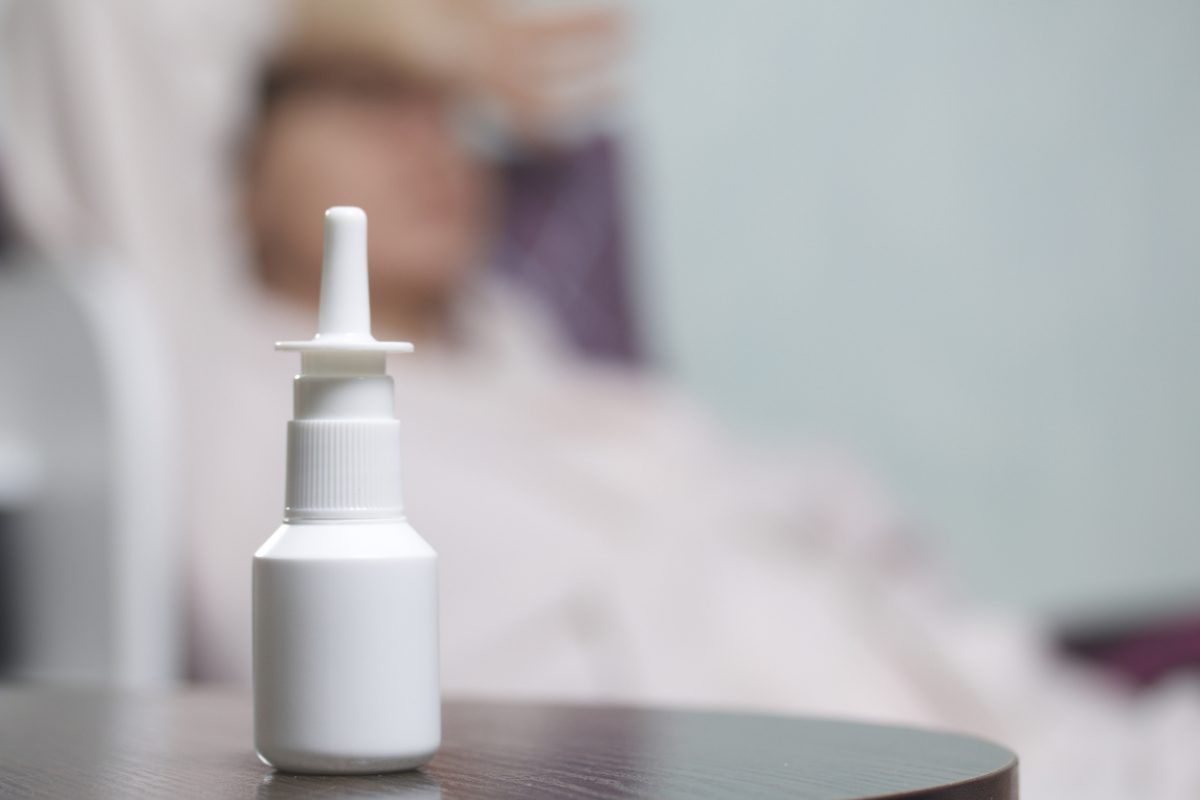Diphenhydramine is an over-the-counter antihistamine and hypnotic medication. High doses can cause paradoxical insomnia, agitation, and hallucinations and may have euphoric effects resembling those of cocaine. Patients with psychotic disorders are at higher risk of abusing substances, including diphenhydramine. Studies show that clozapine, an atypical antipsychotic, may decrease substance abuse in patients with schizophrenia.1,2
Case Report
The patient is a 33-year-old white man with schizophrenia, alcohol abuse, and sedative dependence. At age 21 years, he started taking diphenhydramine when 2 selective serotonin reuptake inhibitors failed to treat his depressive symptoms. He reported that diphenhydramine was more effective at inducing a dose-dependent state of euphoria, although this was not observed by his providers. Over 10 years, he gradually increased his diphenhydramine dose to 1,350 mg/d (maximum: 300 mg/d). Several dozen empty diphenhydramine containers were found in his residence on several occasions. During office visits, he presented highly disorganized and incoherent, reported difficulty urinating, and had several red, dry patches on his face. Additionally, he reported drinking 2 bottles of wine and a 6 pack of beer several times a week. At age 25 years, psychotic and more disorganized symptoms emerged, including delusional thoughts about authority officials and tactile hallucinations. He trialed olanzapine 25 mg/d for 5 weeks and risperidone 3 mg/d for 1 year but discontinued both due to metabolic side effects. During an extended hospitalization, after a diphenhydramine and alcohol wash out, his disorganized behavior and delusional thoughts continued. He was diagnosed with schizophrenia at age 28 years. Aripiprazole was started and titrated to 30 mg/d. Benztropine was started at 1 mg twice daily as needed to treat involuntary movements. Stopping diphenhydramine was encouraged given the overlap with benztropine. Approximately 9 months later, the patient continued to exhibit psychotic symptoms and continued diphenhydramine use.
Clozapine was initiated and titrated to 350 mg/d over 5 months. Once stabilized, the patient’s psychotic symptoms abated, and he discontinued diphenhydramine and alcohol use. No withdrawal symptoms were present. One year later, the patient continued to deny use of diphenhydramine. His medications included clozapine 350 mg/d, aripiprazole 20 mg/d, bupropion SR 150 mg/d, benztropine 2 mg/d as needed, and trazodone 50 mg/d as needed.
Discussion
This is the first report to date, to our knowledge, examining the effects of clozapine on diphenhydramine dependence. There are 2 published cases that showed decreased abuse of dimenhydrinate, also an antihistamine, with clozapine 700 mg/d.3
Tanda et al4 hypothesized that diphenhydramine mimicked cocaine in the brain. They examined the effects of intravenous diphenhydramine (1–3 mg/kg) on the nucleus accumbens of rats, which showed a cocaine-like pattern of dopamine transmission. The behaviors of these rats demonstrated increased locomotor activity and wakefulness. The mechanism explaining the psychostimulant-like effects of diphenhydramine is unknown.
In this case, clozapine effectively diminished diphenhydramine dependence. This patient may have had undiagnosed psychotic symptoms in addition to his depressive symptoms that he was self-medicating. Clozapine may have been effectively treating these symptoms, subsequently diminishing the need for diphenhydramine. Several mechanisms by which clozapine decreases substance use in patients with schizophrenia have been proposed, including affecting the brain reward system and altering levels of neurotransmitters.1
Anticholinergic medications, such as trihexyphenidyl, are reportedly abused by patients with schizophrenia.5 Both diphenhydramine and clozapine have strong anticholinergic properties. Muscarinic blockade may result in increased dopamine and cocaine-like effects; therefore, clozapine may be replacing the anticholinergic need. Although not seen in this case, addition of clozapine to a largely anticholinergic medication regimen can result in anticholinergic delirium.
Greater awareness is warranted for diphenhydramine dependence among patients with psychotic disorders. Excessive use can lead to significant medical and psychiatric complications if untreated. This case supports consideration of clozapine for treatment of schizophrenia with diphenhydramine dependence.
Article Information
Published Online: November 4, 2025. https://doi.org/10.4088/PCC.25cr03998
© 2025 Physicians Postgraduate Press, Inc.
Prim Care Companion CNS Disord 2025;27(6):25cr03998
Submitted: May 6, 2025; accepted July 3, 2025.
To Cite: Trefethen M. Treatment of schizophrenia and comorbid diphenhydramine dependence with clozapine. Prim Care Companion CNS Disord 2025;27(6):25cr03998.
Author Affiliations: Department of Veterans Affairs, White River Junction, Vermont; Geisel School of Medicine at Dartmouth, Hanover, New Hampshire.
Corresponding Author: Marina Trefethen, PharmD, BCPP, 215 North Main St, White River Junction, VT 05009 ([email protected]).
Relevant Financial Relationships: None.
Funding/Support: None.
Previous Presentation: Poster presented at College of Psychiatric and Neurologic Pharmacists Annual Meeting; May 1–May 4, 2011; Phoenix, Arizona.
Patient Consent: Consent was received from the patient to publish the case report, and information has been de-identified to protect patient anonymity.
Acknowledgments: The author thanks James K. Rustad, MD (Department of Veterans Affairs, White River Junction, Vermont) for assistance with submitting this case report and Vinita Mistry, PharmD, BCGP, and Jenel Clement, PharmD (both from Department of Veterans Affairs, White River Junction, Vermont) for assistance with proofreading and editing. Drs Rustad, Mistry, and Clement have no relevant financial relationships to declare.
ORCID: Marina Trefethen: https://orcid.org/0009-0006-6548-911X
References (5)

- Arranz B, Garriga M, García-Rizo C, et al. Clozapine use in patients with schizophrenia and a comorbid substance use disorder: a systematic review. Eur Neuropsychopharmacol. 2018;28(2):227–242. PubMed CrossRef
- Rafizadeh R, Danilewitz M, Schutz CG, et al. Effects of clozapine treatment on the improvement of substance use disorders other than nicotine in individuals with schizophrenia spectrum disorder: a systematic review and meta-analysis. J Psychopharmacol. 2023;37(2):135–143. PubMed
- Prost E, Millson RC. Clozapine treatment of dimenhydrinate abuse. Am J Psychiatry. 2004;161(8):1500. PubMed CrossRef
- Tanda G, Kopajtic TA, Katz JL. Cocaine-like neurochemical effects of antihistaminic medications. J Neurochem. 2008;106(1):147–157. PubMed CrossRef
- Dose M, Tempel D. Abuse potential of anticholinergics. Pharmacopsychiatry. 2000;33(suppl 1):43–46. PubMed CrossRef
Enjoy this premium PDF as part of your membership benefits!





